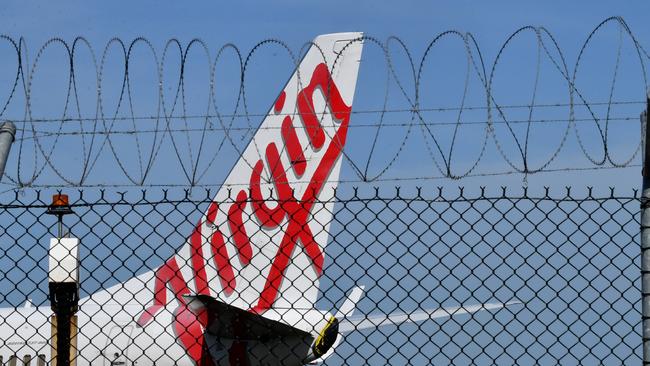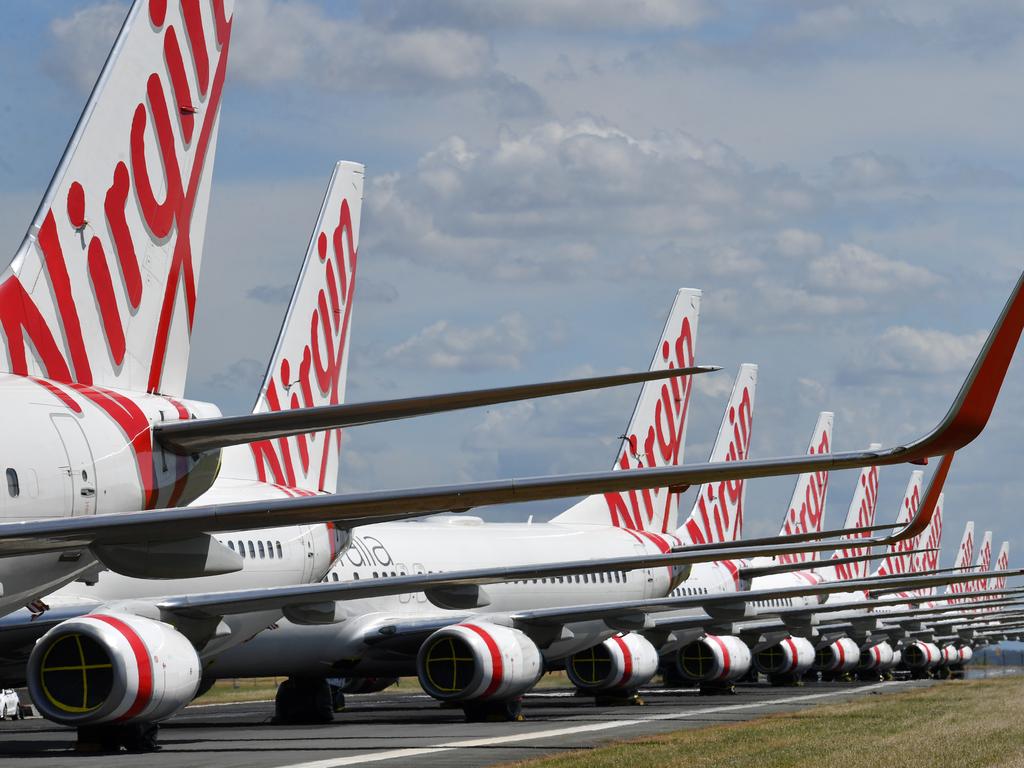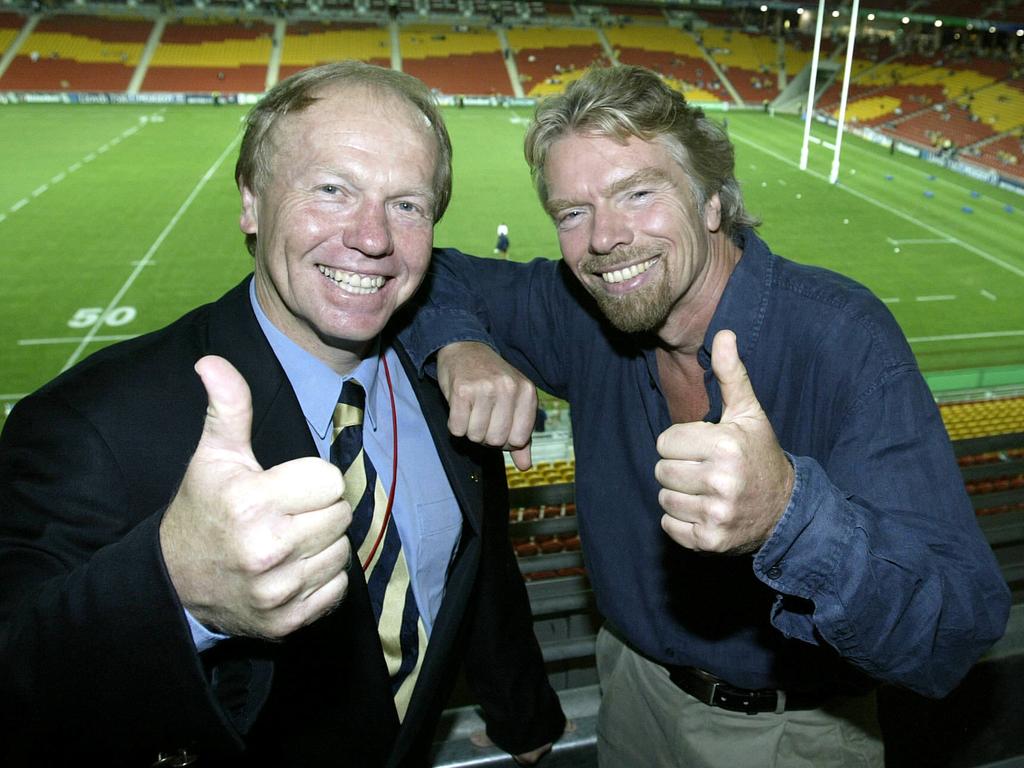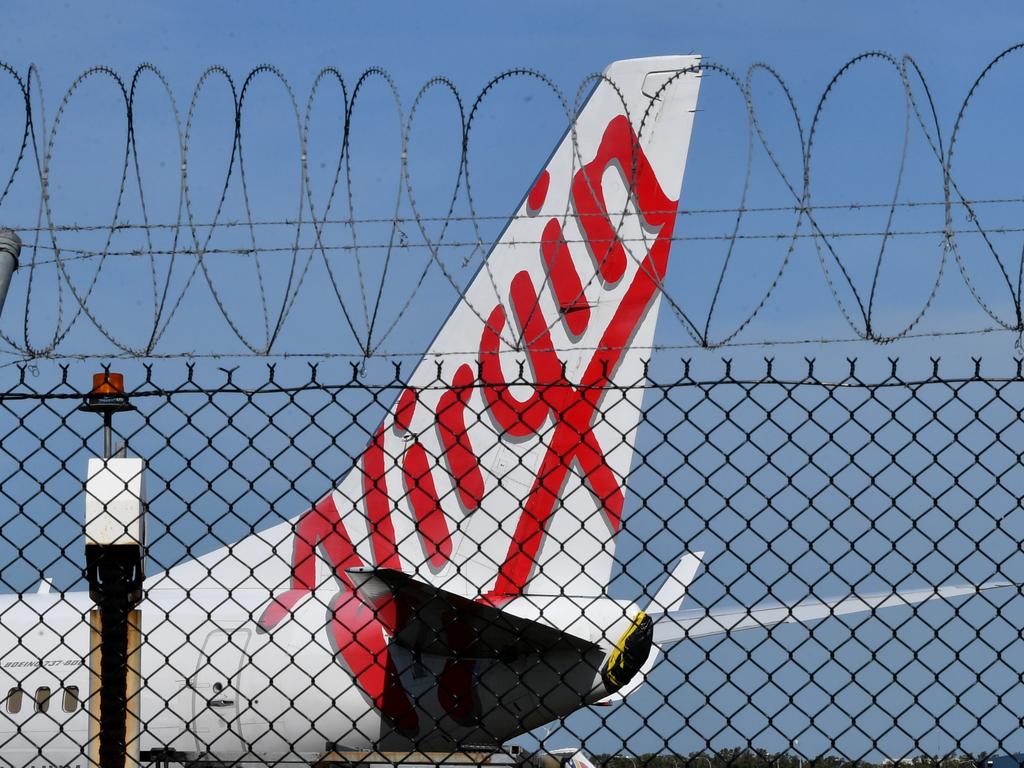
Virgin’s Australia has been placed into voluntary administration after a board meeting on Monday failed to secure a white knight backer. A formal announcement marking Australia’s biggest aviation collapse is expected on Tuesday.
Earlier on Monday The Australian revealed a Virgin board meeting was taking place to discuss the airline’s future as it struggled under a $5bn debt load and effective grounding as a result of the coronavirus crisis. It is understood the board met via a telephone hook-up.
The collapse of Australia’s second biggest airline is expected to send shockwaves through the aviation and tourism industry. It is also expected to trigger a second round of impact across airport operators and suppliers.
Although it is understood there is expectation the underlying business can be saved through a debt restructure with support of an equity injection. Both secured and unsecured creditors are expected to take a significant haircut.
It is understood that Deloitte has been appointed to the administration role although the existing management team will remain in place. Much of the focus for the administrators remains on the restructuring of Virgin Australia’s $5bn debt.
Earlier on Monday The Australian revealed a Virgin board meeting was taking place to discuss the airline’s future as it struggled under a $5bn debt load and effective grounding as a result of the coronavirus crisis. It is understood the board met on Monday via a telephone hook-up.
Meanwhile, an unnamed air carrier is understood to be seeking to partner with a private equity firm, which is expected to receive backing from the government for a restructure of Virgin after administration.
While details of the carrier remain tight, sources close to the Virgin board argue existing shareholder Singapore Airlines is likely to emerge as a contender given the Asian aviation major still sees long-term strategic value in having a carrier in Australia.
Deloitte’s Vaughan Strawbridge has been appointed to the administration role. The existing Virgin management team will remain in place. Much of the focus for the administrators is on the restructuring of Virgin Australia’s $5bn debt.
It is understood there is an expectation the underlying business can be saved through a debt restructure with support from an equity injection, although secured and unsecured creditors are expected to take a significant haircut.
The collapse comes after the federal government declined to support a $1.4bn bailout of Virgin Australia in its existing form.
But there is still hope the government may come to the table after administration, when the troubled carrier is completely overhauled and equity and bond holders take a bath on their investments, with the equity value wiped completely.
The scenario being discussed involves the federal government injecting funds into the troubled carrier should private equity and an industry player working on a deal also come to the table or else offer a smooth regulatory clearance path for a deal to proceed.
The $5bn-odd debt pile would be restructured with help from Virgin Australia advisers, which include Houlihan Lokey, Deloitte, UBS and Morgan Stanley and law firm Clayton Utz.
In its new form, with backing from an international carrier and a buyout fund, Virgin Australia would continue with domestic capabilities.
One of the private equity funds said to be examining Virgin Australia is Australia’s BGH Capital.
The firm counts as one of its founding partners Ben Gray, who ran TPG Capital’s Australian operations when it put forward a takeover bid for Qantas before the global financial crisis more than a decade ago.
However, that deal never eventuated.
Many have said TPG is likely to have dodged a bullet because of the downturn that followed and the financial challenges later faced by Qantas, which resulted in it making an unsuccessful plea to the government for financial help.
No doubt the major drawcard for a buyout fund involved in a transaction will be Virgin Australia’s lucrative Velocity frequent-flyer program. Last year it took on more debt to gain full ownership, outlaying $700m to buy a 35 per cent stake from Affinity Equity Partners.
But Velocity is only valuable when attached to a healthy airline.
Virgin Australia’s bondholders are believed to be in search of an adviser to represent their interests, with almost $1bn at stake.
Virgin’s US bondholders are owed $US425m ($662m) and Australian bondholders $325m.








To join the conversation, please log in. Don't have an account? Register
Join the conversation, you are commenting as Logout